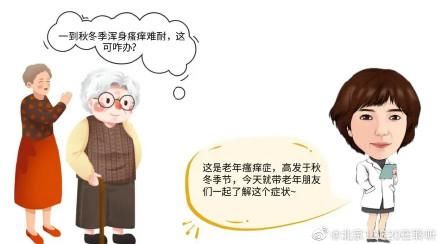This article is transferred from: Guangming.com
Senior Health Promotion Week
1. Avoid scratching and scratching is a frictional stimulus to the skin, and this stimulus itself will Induce itching, so it is easy to fall into a vicious circle of scratching and itching, and itching and scratching. Excessive scratching can also cause new skin lesions, including scratches, blood scabs, hyperpigmentation or hypopigmentation, thickening and rough skin over time, and secondary skin infections, such as folliculitis, boils, and lymphadenitis.
2. Skin care Because the skin will become dry after aging, and the skin barrier function will decline, so you should also pay attention to bathing. First, the frequency of bathing, to avoid frequent bathing, it is recommended to take 2 to 3 times a week; Second, the choice of water temperature, use warm water when bathing, avoid hot water for washing; Third, the choice of detergent, the choice of skin irritation Use a smaller body wash instead of a soap with high alkalinity; Fourth, avoid using a bath towel, which will damage the skin barrier, and friction and irritation can also easily induce itching; Soothes dry skin.
3. Reasonable diet Maintaining a healthy and nutritionally balanced diet is very important for the elderly with itchy skin problems. During the period of illness, the diet should be light, avoid eating spicy food, seafood, beef and mutton, wine and other hair products, and can eat eggs, milk, chicken and other high-quality protein to supplement nutrition.
4. Clothes and clothing The elderly due to the deterioration of the physiological functions of the skin and the ability to regulate body temperature become poorer, so clothing should be increased or decreased in time according to the changes in temperature. It is advisable to choose loose, soft, and breathable pure cotton clothing, and avoid wearing chemical fiber or wool-like personal clothing, so as not to induce or aggravate itching. 